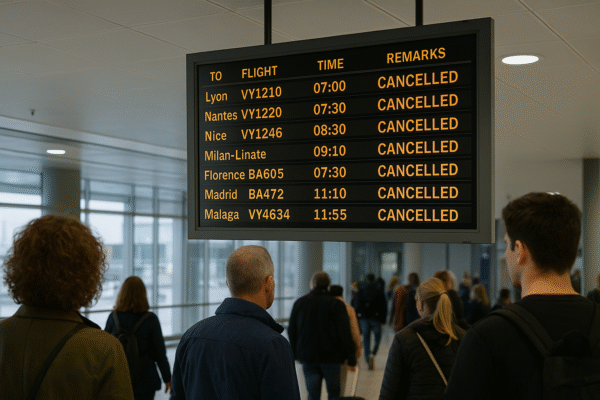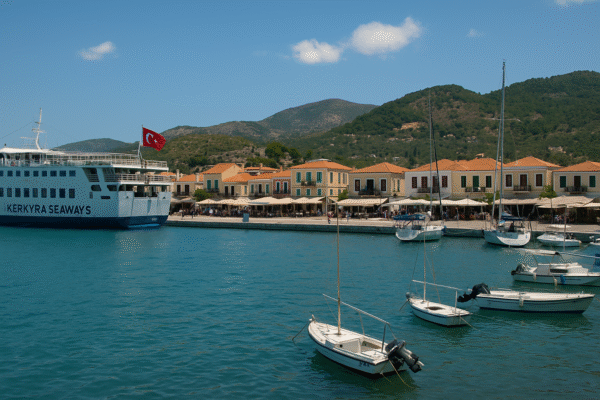The Aegean islands of Greece are experiencing a tourism boom that is reshaping local economies and communities. While the influx of Turkish visitors and investors is breathing new life into destinations like Samos, Kos, and Alexandroupoli, it is also creating a wave of cultural and social tension among locals who are grappling with the rapid changes in their way of life.
Economic Surge Meets Cultural Strain
Tourism officials report a sharp increase in Turkish travelers taking advantage of relaxed visa policies, affordable cruise packages, and convenient ferry connections between Turkey’s western coast and Greece’s Aegean islands. This surge has driven strong growth in the hospitality and retail sectors, boosting revenue for restaurants, beach bars, shops, and transportation services.
Real estate transactions are also skyrocketing, fueled in part by programs that encourage property investments, such as Greece’s “golden visa” initiative, which offers residency to foreign buyers who purchase properties above a certain threshold. On islands like Kos and towns like Alexandroupoli, this has created a thriving property market and provided a much-needed boost to local economies still recovering from the pandemic downturn.
Frustration Over Tourist Attitudes
However, the economic boom has come with challenges. Locals in Samos and Kos describe growing frustration over what they perceive as entitled or demanding behavior from a small but visible segment of Turkish tourists. In some instances, visitors have been reported to expect instant service, preferential treatment, or special accommodations based solely on their spending power.
These interactions are often described as stressful for workers in small, family-run businesses who are unaccustomed to the fast-paced, high-demand style of tourism service that some visitors expect. The slower, more personal pace of island hospitality often clashes with these expectations, leading to uncomfortable situations that fuel tension between visitors and locals.
Real Estate: Opportunity and Unease
Beyond tourism, the increasing presence of Turkish investors in the Aegean real estate market has sparked debates in local communities. In Alexandroupoli and parts of the Evros region, residents voice concerns about the rising number of property purchases by foreign buyers, worried that large-scale acquisitions could drive up prices and limit opportunities for locals.
While many officials highlight the benefits of these investments — from job creation to infrastructure improvements — others argue that unchecked foreign ownership risks altering the cultural and economic balance of smaller communities. The rapid changes have prompted calls for greater transparency and regulation of real estate transactions in sensitive border regions.
Not All Encounters Are Negative
Despite these challenges, many Turkish visitors are praised for their respectful and friendly approach to Greek culture. There are countless stories of families who immerse themselves in local traditions, spend generously but humbly, and build warm relationships with residents.
On Samos, for example, one family’s relaxed and polite demeanor stood in sharp contrast to earlier incidents of tension, reminding locals that visitors are not a monolith. Long-time travelers who return year after year often form deep bonds with residents, turning what began as a simple holiday into a friendship rooted in mutual respect and appreciation.
A Clash of Cultures
Experts note that these tensions often stem from cultural differences rather than outright hostility. Many Turkish tourists are accustomed to the fast-paced service culture of Istanbul or Izmir, where efficiency and speed are highly valued. By contrast, Greek islands maintain a slower, more personal rhythm that prioritizes conversation and connection over speed.
This cultural mismatch can create misunderstandings — especially during the high season when businesses are overwhelmed — but locals emphasize that these issues are solvable with patience, dialogue, and a willingness from visitors to adapt to the unique pace of island life.
Cross-Border Bonds
The dynamic between locals and respectful visitors highlights the potential for tourism to bridge historical divides. Cross-cultural couples and long-standing friendships between Greeks and Turks symbolize a more hopeful narrative, showing that even in the shadow of geopolitical complexities, genuine human connections can flourish. These positive stories demonstrate that cultural understanding and adaptability can transform tourism from a source of friction into an opportunity for lasting relationships.
Looking Ahead
As the Aegean braces for another record-breaking season, the challenge lies in balancing economic growth with social harmony. Local communities and officials are calling for better communication campaigns to educate tourists on local customs, along with policies that ensure real estate investments benefit rather than disrupt communities.
At the same time, hospitality workers stress the importance of maintaining the authentic charm and slower pace of life that make these islands so appealing to visitors in the first place. Sustainable tourism strategies, respectful engagement, and cross-cultural understanding will be key to ensuring that the Aegean remains not only a top travel destination but also a space of mutual respect and harmony.
For more travel news like this, keep reading Global Travel Wire















